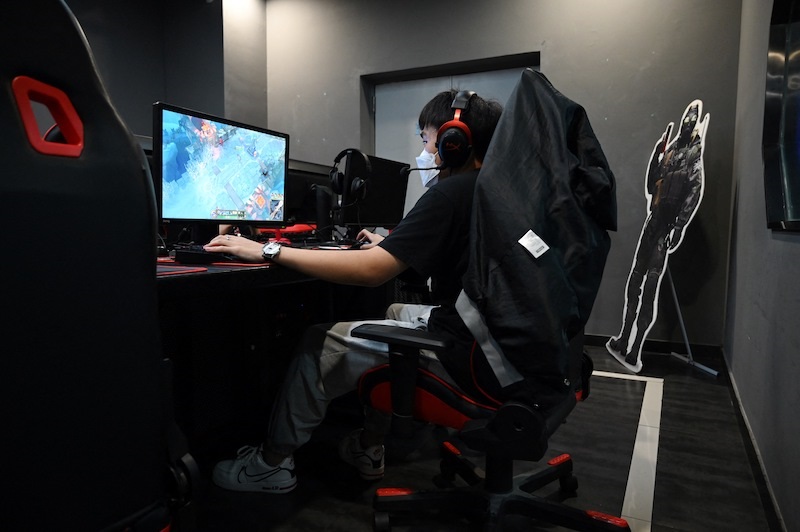Beijing moved against its vibrant gaming sector last year as part of a sprawling crackdown on tech giants, capping the amount of time children could spend playing games and slowing approvals for new titles. — AFP pic
BEIJING, April 12 — China yesterday approved its first batch of new video game licenses in nine months, ending a lengthy freeze that sent jitters through the world’s largest gaming market.
Beijing moved against its vibrant gaming sector last year as part of a sprawling crackdown on tech giants, capping the amount of time children could spend playing games and slowing approvals for new titles.
But yesterday the National Press and Publication Administration said it had approved 45 titles of new games — the first since July last year, according to its website.
During the tech crackdown, hundreds of game makers pledged to scrub “politically harmful” content from their products and enforce curbs on underage players in a bid to comply with government demands.
But the moves struck hard at many companies’ bottom lines, including Chinese domestic giant Tencent, which was told it had to gain government approval before releasing any new apps or updates.
The gaming titan — the maker of the wildly popular Honour of Kings — posted its slowest revenue growth since 2004.
Neither Tencent nor rival NetEase appeared on the list of newly-approved games yesterday.
But overseas Chinese tech stocks still soared in pre-market trading, with Nasdaq-listed NetEase briefly jumping over eight per cent.
Video-sharing site Bilibili rocketed by over nine per cent on the same bourse, while New York-listed Huya rose eight per cent.
China’s ruling Communist Party has relied on success stories like Tencent to push a digital transformation in the country, with the biggest domestic apps seamlessly integrated into the lives of hundreds of millions.
But Beijing turned on the sector as concerns mounted over allegations of monopolistic practices and data abuse, as well as reining in the entertainment industries. — AFP



